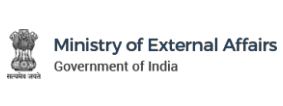Briefing by Foreign Secretary, Mr. Shivshankar Menon on the visit of US Under Secretary for Political Affairs, Mr. Nicholas Burns to India
New Delhi
June 2, 2007
FOREIGN SECRETARY (Mr. SHIVSHANKAR MENON): I thought I would brief you on Under Secretary Burns’ visit while it is still fresh in our minds.
We have had Under Secretary Burns here for the last three days. We have had three intense, productive, constructive days of discussions with him. Apart from the talks with Special Envoy Shyam Saran and me on the 123 Agreement, he also called on our leaders. Earlier this evening, he had a courtesy call on Prime Minister. Yesterday evening, he called on the External Affairs Minister, Shri Pranab Mukherjee. He has also met I think a wide range of leaders across the political spectrum.
We used the opportunity not only to do the 123 Agreement, but also to talk about regional issues, about global issues that interest us, and about the broader India-US relationship which, as you know, has been transformed over the last few years. Maybe, I will just run you through those discussions and then I would be happy to answer any questions that you might have.
On the 123 Agreement which took up most of the time, we have had, as I said, constructive and productive discussion. There were several issues which were still open when we started this discussion. We have managed to remove some from the table. We still have a few issues left where there is some distance for us to travel. Our goal in this exercise is to produce a bilateral cooperation agreement for civil nuclear energy which reflects fully the July 18, 2005 Joint Statement and the March 2, 2006 Joint Statement between Prime Minister and President Bush, and the statement the Prime Minister has made in Parliament.
We are still in the process of discussing the various issues. So, I do not want to go into the specific issues. In fact, I would not. We have an agreement among ourselves that we will not negotiate through the media, we will negotiate with each other. But I can tell you that as a result of the last three days’ discussions, we have come much closer in our understanding of the issues that still divide us and we have managed to remove most of the issues from the table. It is our hope that when we do this agreement, which we both want to do rapidly, we will thereby make a major contribution to our own energy security to producing the energy that India needs for her own development, in a clean and environment-friendly manner.
While in New Delhi, as I said, Under Secretary Burns called on the Prime Minister earlier today. This was a courtesy call. They reviewed the relationship as a whole, expressed satisfaction at the developments in the relationship, and looked forward to its further development. He called on the External Affairs Minister yesterday where the External Affairs Minister extended an invitation to Secretary of State Rice to visit India. It is possible that she will be coming within the next few months to India. We are working on that. They also covered regional and other issues and the broader relationship between our two countries. He called on the National Secretary Advisor also yesterday evening where again they covered both the 123 Agreement and the broader relationship.
All told, I think this has been a positive and useful visit. It has taken us some of the way forward towards the Agreement that we want, towards our goal or the 123 Agreement which actually reflects in legal terms the understandings that our leaders have arrived at previously.
Am I satisfied with the visit? Yes, I think we have achieved what we could, what we set out to do in this particular round. We have agreed that we will continue these discussions until we bring the discussions to a successful conclusion.
I would be happy to answer any questions that you might have.
QUESTION: You said that you do not want to negotiate through media. But could you at least tell us the areas where you have reached agreement?
FOREIGN SECRETARY: Rather than doing that what I would like to do is to just say that we have made considerable progress towards this goal of an agreement which reflects July 18, 2005 and March 2, 2006 Joint Statements and what Prime Minister said in Parliament. But there are still issues where there is a gap. Maybe now, thanks to these discussions, we both understand each other’s positions much better. We know what is possible. We even, in some cases, see a way forward towards resolving. But we need to sit and think about it. We will do a little thinking, they will do their thinking. This is normal. I think this is part of the negotiating process. So, I do not want to get into which issue is at which stage of resolution.
QUESTION: I have pretty much the same question….
FOREIGN SECRETARY: I will give you the same answer.
QUESTION: If you could at least tell us in ‘yes’ or ‘no’. We know that the right to reprocess spent fuel has been at the heart of the differences we have had with them. Is that still an issue?
FOREIGN SECRETARY: That is one of the issues we discussed.
QUESTION: You said that Mr. Burns met the Prime Minister. Was there any message from President Bush to the Prime Minister? Is any meeting between President and the Indian Prime Minister scheduled?
FOREIGN SECRETARY: I think they both will be in the Heiligendamm together on the 8th of June for the Summit. Now I think they are in the process of trying to schedule the meeting. But certainly they will have an opportunity to talk while they are there together.
QUESTION: Did he get any letter or any message from President Bush?
FOREIGN SECRETARY: No, he did not.
QUESTION: Have you set any dates or deadlines for finalizing the agreement?
FOREIGN SECRETARY: We are optimistic that we will have an agreement. But, as you know, I have never tried to set dates for this, or to set deadlines because I do not think that is the right way to negotiate something that is so complicated where the issues are really interlinked. Therefore, to start saying that we have done one issue and not done the other, actually does not reflect the situation properly. Many of these issues are interlinked. It is a complicated agreement. It is the first time I think we are trying to have such an agreement, both of us. Both, I think, have the will to bring it to a successful conclusion. But I do not think that setting dates or deadlines is really the way to go about.
QUESTION: You said that both sides are trying to give a legal expression to the two Joint Statements. Are the United States and India on same page as far as the whole set of commitments which …(inaudible)… It is an acknowledged fact that …( inaudible)… is an integral part of the July …( inaudible)…
FOREIGN SECRETARY: I think that is exactly what we are establishing with this agreement. When we have the agreement we will say, “they are on the same page entirely.” I think we are closer and closer to being entirely on the same page. That is what this negotiation process is about. But the problem here is I think that, as I said, these are interlinked issues. So, it is not possible to say, ‘Yes, on this issue we are on the same page, on this issue we are not”, because they all affect each other.
QUESTION: Is it difficult to reach the (123) agreement within the legal framework if there is no agreement at the political level?
FOREIGN SECRETARY: This is a chicken-and-egg situation. We have a political understanding already. I think it is a question of reducing that to a legal framework. I think that is what we are doing.
QUESTION: You said there was a gap in understanding in some of the issues. Do you want to tell us what that is?
FOREIGN SECRETARY: No.
QUESTION: Is there any thought that we could be running out of time? Is there a possible timeframe (that) you are looking at to wrap up the discussions? When could the next round of talks be held?
FOREIGN SECRETARY: We both like to do it very quickly, the quicker the better, quite frankly. But, as I said, we are not setting deadlines for ourselves. I do not think we are saying that we will do it by this date or that date. What we have agreed today is that we will meet again, we will discuss this again. We both need a little time to think over what we have done over the last few days. Then we will re-engage whenever it suits both of us.
QUESTION: How many rounds of talks have been completed between the two countries so far?
FOREIGN SECRETARY: Formal rounds - four. But this is a subject that we have been discussing in various conversations whenever we met at various levels. Yes, four is the formal number of rounds that we have had. But I do not think it reflects the reality of the nature of the engagement.
QUESTION: Have any dates been finalized for Prime Minister’s visit to the US?
FOREIGN SECRETARY: I think we have not set dates for the Prime Minister’s visit yet. What we are now looking at is a visit in the next few months by the Secretary of State. We still have to agree dates. But I think when the External Affairs Minister extended the invitation yesterday we were looking at dates sometime towards the end of July and beginning of August.
QUESTION: Aap ye to abhi nahin batana chahte ki asahmati kin muddon par hai. Kya aap ye bata sakte hain ki kin muddon par sahmati bani hai?
FOREIGN SECRETARY: Agar wo bataun to aapko doosra bhi pata chal jayega.
QUESTION: Sahmati aur asahmati ke beech mein kitna doori hai?
FOREIGN SECRETARY: Sahmati to bahut saare muddon par hai. Asahmati to bahut kum ho gayi, pehle se bahut kum ho gayi. Har baar jab ham baat karte hain, to hum yahi koshish karte hain ki sahmati ka jitna bhi bhag hai woh badhe. Aur bahut kuchh badh gaya pehle se.
QUESTION: Sahmati aur asahmati ka percentage kya hai?
FOREIGN SECRETARY: Hum percentage to nahin laga sakte.
QUESTION: Aapke hisab se, ab Dilli kitni door hai?
FOREIGN SECRETARY: Main to Dilli me hi hun. Yehi main keh raha tha ki ispe main na to koi percentage lagana chahta hun, na koi distance ka andaza lagana chahta hun. Jab ho jayega tab aapko bata denge ki poora ho gaya. Lekin baat to jaari rahegi.
QUESTION: Mr. Menon, since we want to know something more than you want to tell us, Mr. Burns is not here and you are not addressing the Joint Press Conference, shall we understand something more out of that? What does it mean?
FOREIGN SECRETARY: It only means that Mr. Burns has to catch a flight and he has gone to the airport. That is what it means.
QUESTION: One of the issues you have to resolve is the sequencing arrangement like when we deliver on the IAEA safeguards and other things etc. Is this technical delegation level talks the forum where the problems would be addressed or they will be addressed at some other level?
FOREIGN SECRETARY: I think what we are trying to do is to do all these processes simultaneously. Obviously we need a bilateral civil cooperation agreement before we have something that needs to be safeguarded. But we have begun our contacts with the IAEA to discuss an India-specific safeguards agreement and those discussions have gone well, positively. Once we have a bilateral civil cooperation agreement with the US, we would then I think be in a position to actually move further forward on the IAEA safeguards agreement and go to the NSG for the necessary exemption. I think ultimately our goal is to have it all done, and the quicker we can get all three done, the better.
QUESTION: Has any date been agreed for the next round of talks?
FOREIGN SECRETARY: No, we have not agreed a date.
QUESTION: Sir, by any chance was the letter written by the Senators raised in the discussions?
FOREIGN SECRETARY: No.
QUESTION: Abhi jo talks hongi, woh aapke aur Burns ke beech mein hongi ya koi doosre level pe hongi? Jo samasyaen Bharat ko hain, Hyde Bill ko leke, zaahir si baat hai ki Bharat ki apattiyon ko agar America manta hai aur usko badalna chahta hai to phir Americi Congress mein jaana hoga. Aur agar Bharat America ki baat manta hai to phir apni Sansad ko jawab dena hoga. Beech ka rasta kya hai?
FOREIGN SECRETARY: Let me be precise. The US Administration has assured us that nothing in the Hyde Act prevents them from implementing their obligations under July 18, 2005 and March 2, 2006 Joint Statements. Our task is to reduce those understandings into a legal agreement. So far we are well on the way to doing so. As I said, we are close to actually doing so. When we finish that task, we will be able to confirm to you whether or not anything in the Hyde Act prevents the US Administration from fulfilling its obligations as we understand them under those two Joint Statements. I think that is the position today. Our job is to reflect those understandings in the agreement. So far we have been assured nothing prevents that. So far we are moving forward steadily.
QUESTION: Aise kaunse vikalp hain jin par America ko apni Sansad ke liye jawab dena padega aur Bharat ko bhi apni Sansad ko jawab dena padega?
FOREIGN SECRETARY: Jab aap agreement dekhenge to saari baatein saaf ho jayengi.
Thank you very much.







